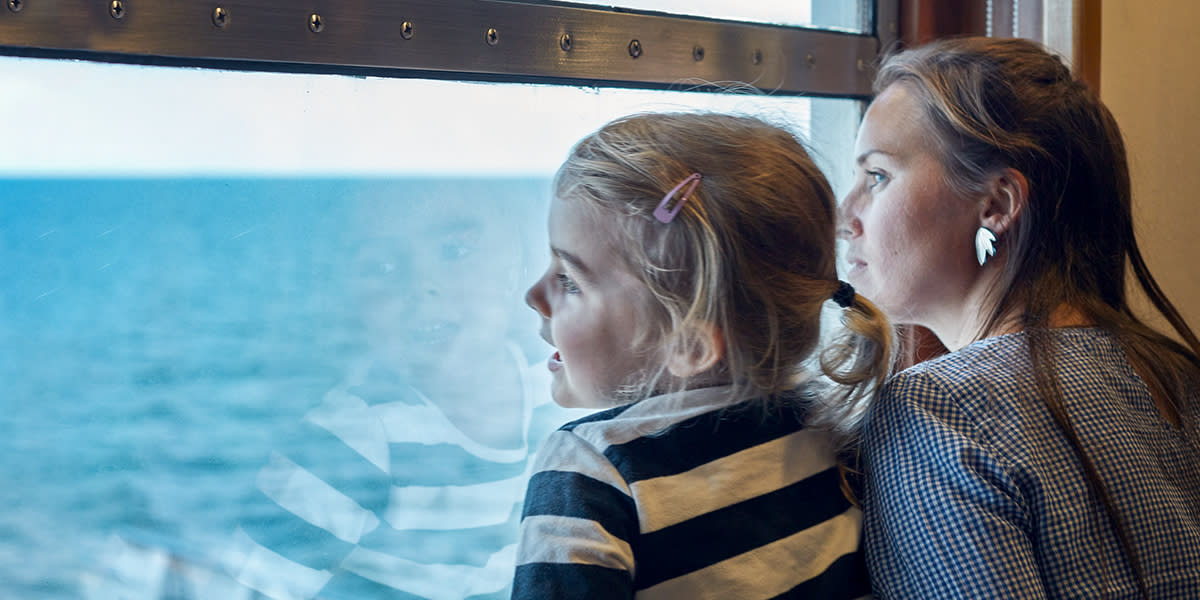
Planning holiday during lockdown
Psychologist about travel planning during quarantine: we feel better when we dream
The pandemic and the quarantine and bans imposed in many countries have frozen travelers' plans - an estimated 65% worldwide. decreased flows. However, the need for travel has not disappeared - psychologists note that it is possible to travel at a distance: by dreaming and planning future trips, we start the journey emotionally now.
Psychotherapist Genovaitė Petronienė notices that at the moment there is a bad mood in society, because people feel that they have been deprived of their holidays. "Everyone feels depressed because we won't be able to go on holiday very soon. Even if we can travel in the summer, it is so far away that it seems that we will not survive until that summer. It’s terribly depressing and annoying. This is the cumulative effect of all quarantines. "
A psychotherapist believes that overcoming the current state can be helped by simple things and a positive attitude to the future, vacation planning, which has a positive effect on a person's psychological state, because preparing for vacation is reminiscent of dreaming. “A person, no matter what he is in everyday life, dreams of living in the future, that a good thing awaits him, then hope, optimism and purpose appear. Therefore, preparing for the trip is good, because it brings the excitement of adventure, the feeling of knowing the world into the routine, ”says the psychotherapist.
Planning and dreaming about future vacations can not only improve your emotional state, but also affect your ability to work or communicate with others. According to G. Petronienė, thoughts about the upcoming trip improve the mood even for those who are ready to travel alone: “People who travel without friends or family usually plan the trip more carefully, so , happiness and hope. "
Want a vacation but are afraid to travel
G. Petronienė notices that the positive effect of travel planning is currently hindered by the feeling of fear. "People remember the countries they visit, travel and dream about the future, but they are deterred by specific plans and decisions by fear. Most travelers fear that if they buy tickets, the trip will not take place and the money paid will be lost - similar situations occurred during the first quarantine. People are afraid that the spring scenario will happen again, ”the psychotherapist concludes.
Surveys also show that Lithuanians dream of holidays, but their planning is hampered by fear. A survey commissioned by DFDS, one of Europe's largest ferry operators in the Baltics, examined travelers' plans and asked if they felt safe about future trips. The study found that 59 percent. respondents believe that traveling is now unsafe, with more than 62% people do not plan to travel in the next six months, citing in the first place the fear of contracting Covid-19 and in the second - facing travel and quarantine restrictions.
The situation of uncertainty about future bans and restrictions frightens travelers the most: “On the one hand, you want to travel, get out of the routine, on the other hand, there are fears that the tickets you buy will be lost due to the changed situation. People do not plan holidays so boldly and clearly, ”says G. Petronienė. However, the psychotherapist points out that the prevailing fear during this period is not the fear of holidays, travel planning, but the fear of state bans and new surprises. "People are sensitive, scared right now, but some of them are looking and finding ways to travel even now." How to overcome fear?
Psychotherapist G. Petronienė states that the fear of travel can be overcome with a rational mind. “An adult can soberly calculate risks and follow that, as he does when taking small risks in finance, in his career. The same goes with travel. The use of rational thinking is hindered by fears, emotions that need to be learned to calm down, to understand that it is childish, and that trembling girl or boy needs to be caressed and calmed inside. ”
The travelers themselves are also looking for rational solutions that would reduce the chances of getting stuck in the middle of a trip when the situation changes. According to a survey of travelers conducted by DFDS, almost 50 percent. respondents would choose a car to travel in the next six months. Also, 6 out of 10 respondents answered that they are likely to travel by ferry in the future, as this mode of travel allows them to travel in their own vehicle and thus feel safer. Travelers try to find rational solutions to not feel constrained by space while traveling. According to the survey, 58 percent. 48% of travelers traveling by ferry with a car said that the advantage of such a trip was to get on deck, and 48 percent. said that while traveling in this way, they would not feel forced to be in the same space with other passengers.
It is the response of rational people to a pandemic, looking for effective and safe ways to maintain control in times of chaos, weighing the risks and benefits. "Rational people know what a restriction is and what can be expected," says G. Petronienė.
The travel industry responds to the needs of travellers
According to Vaidas Klumbis, DFDS's Head of Public Relations and Communications for the Baltic States, last year there was a decrease in passenger flows in the Baltic Sea, almost no leisure and holiday travelers, but the need to travel has not disappeared in the long run: 29% of persons plan to visit abroad during the holidays. travel during students ’winter, Easter, and summer vacations, and 30 percent. respondents would travel at another time. "
In response to travelers ’fears and the ever-changing situation, the company has changed its ticketing policy and makes it possible for buyers of advance tickets to reschedule a trip to another date at no extra charge.
"We can see from the polls that travelers are afraid of uncertainty, uncertainty, constantly changing rules, so I am not afraid to plan for the future now. As a ferry operator, we make it possible to plan trips without fear. We respond to the concerns of our customers and apply 100 percent. a guarantee that when the plans change, it will be possible to change the date of travel and travel abroad at a convenient and safe time, ”assured Vaidas Klumbys.
The DFDS Communication Manager reminds the Baltic States that all DFDS ferries have taken additional safety measures since the beginning of the pandemic: disinfection stations have been installed, passengers are constantly reminded to strictly follow the rules of wearing masks and distances, and the ferry crew is trained. "We understand that the pandemic has changed the habits and expectations of travelers, so we are changing. We strive that travel planning does not cause headaches, but positive emotions, ”says Vaidas Klumbys.
From January 25. DFDS is running a pre-bidding campaign: until February 28th. it is possible to buy tickets with 30 percent. discount for family tickets and camper trips, and an animal ticket is applied for as much as 50 percent. discount. By purchasing advance tickets, DFDS guarantees that the travel date can be changed once free of charge if the plans change. The best time to plan trips is now!
Our routes

Championing the Seas!
We're elated to announce that DFDS has once again retained its title as Europe’s Leading Ferry Operator at the 2024 World Travel Awards.
This accolade wouldn’t have been possible without you, our loyal passengers. Thank you for recognising the hard work of our exceptional team members who are dedicated to ensuring each voyage is as exceptional as the next.
Your ongoing support is the anchor to our success.



